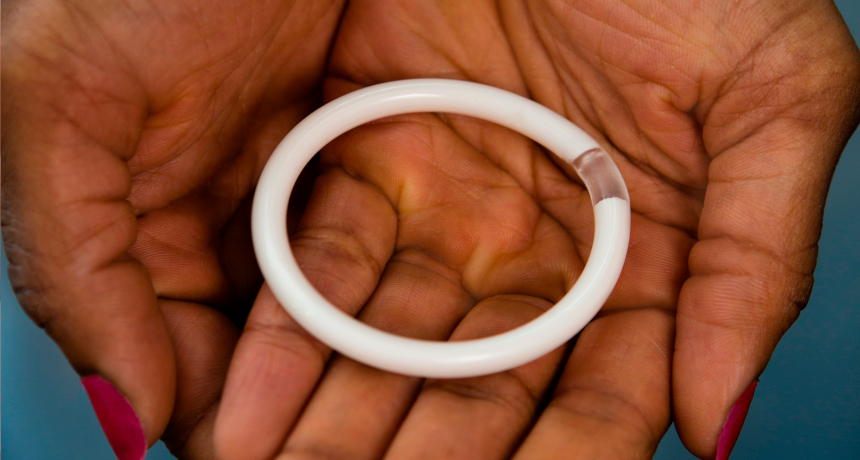
CONRAD is developing a 90-day controlled-release intravaginal ring (IVR) available as both a tenofovir-containing or levonorgestrel and tenofovir dual reservoir device for protection against HIV, HSV-2, and unintended pregnancy. A ) confirmed the TFV/LNG and TFV-only intravaginal ring to be both safe and well-tolerated with highly favorable markers of protection against HIV-1, HSV-2 and pregnancy, promising expansion for choice of prevention tools among adolescent girls and women.
There is still a significant unmet need for products that protect against the triple epidemics of HIV, unintended pregnancy, and HSV-2 infection that women, especially those in low-income countries, face. Multipurpose prevention technologies (MPTs) like this IVR aim to simultaneously meet diverse sexual and reproductive health needs, including prevention and protection against multiple of these indications, with a single product.
MPTs have great potential to provide significant global reproductive health benefits, especially in sub-Saharan Africa where market research has revealed that women highly prefer MPTs conferring protections against both HIV and unintended pregnancies instead of using separate methods. Long-acting MPTs have the potential to overcome current barriers to use of existing preexposure prophylaxis products such as adherence, stigma, lack of privacy for storing products, and perception of HIV risk by providing a safe and effective intervention that can be used independently without partner knowledge and with few side effects. An IVR that is usable for multiple indications, user-friendly, and discreet represents a significant advancement in the field of MPTs.
The TFV/LNG IVR is currently in the clinical phase of development and has repeatedly met all benchmarks for safety, pharmacokinetics, pharmacodynamics, and drug release in women.
A first-in-women Phase I trial (CONRAD-128) was previously completed in 2016 and an expanded Phase I study (CONRAD-138) in 2019, among others:
A 90-day tenofovir reservoir intravaginal ring for mucosal HIV prophylaxis
This work was supported by the United States Centers for Disease Control and Prevention (CDC) with funds from the Division of HIV Prevention and the United States Agency for International Development (USAID) with funds from the U.S. President's Emergency Plan for AIDS Relief (PEPFAR) through cooperative agreement U01PS005183, 2017-2021.